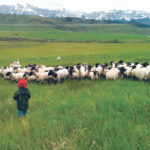On the Farm: Rick and Marilyn Neville are major advocates for using sheep to manage pasture, but it must have a goal
LUNDBRECK, Alta. — After spending many summers grazing sheep in many pastures, the shepherds have come home to their own flock. Marilyn and Rick Neville have a quarter section of land and 70 Suffolk-cross ewes along Todd Creek, in the shadow of the Livingstone Range. They’ve lived here since 1979 when they decided to buy […] Read moreStories by Barb Glen
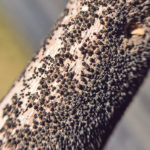
Blackleg resistance may be breaking down in Alberta
Crop diseases in Alberta for the coming growing season include a familiar list of production bandits: blackleg, fusarium head blight, overwintered stripe rust and wheat streak mosaic and that most nefarious of robbers, clubroot. Michael Harding, research scientist and plant pathologist with Alberta Agriculture, said surveys show blackleg “hot spots” of high incidence between Red […] Read more
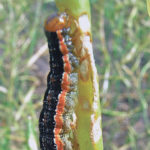
Alberta receives bertha armyworm warning
The province’s farmers are warned to be particularly watchful for bertha armyworms, flea beetles and pea aphids
Bertha armyworms, flea beetles and pea aphids are the three insect pests most likely to create problems in Alberta this year. Bertha might be especially big. “This one for me is the big warning in 2019,” said Scott Meers, an insect management specialist with Alberta Agriculture. “I fully expect that we will have outbreaks in […] Read more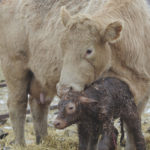
Producers must ensure calves suckle quickly after birth
If it sucks, that’s a good thing — when it comes to newborn calves. It’s so good, in fact, that newborns with a good suckle reflex are 41 times more likely to consume colostrum on their own compared to calves with a weak suckle reflex. Dr. Craig Dorin of Veterinary Agri-Health Services in Airdrie, Alta., […] Read more
Nasal vaccines recommended for newborn calves
Using nasal vaccines on newborn calves can be good protection, particularly if maternal antibodies might be low, says a bovine veterinarian. Dr. Nathan Erickson, an assistant professor at the University of Saskatchewan’s Western College of Veterinary Medicine, said nasal vaccine use on neonatal calves — those newborn to three months old — can head off […] Read more
Fecal sample useful weapon when controlling scours
The nature of scours in young calves makes it easy to collect a stool sample, and veterinarian Dr. Lisa Freeze advises cow-calf producers to do just that before providing treatment. There are many different causes of calf scours and “there’s absolutely no way that you can look at a calf, or your vet can look […] Read more

Alberta’s first PED discovery brings worry
BANFF, Alta. — These are dark days for the 400-sow farrow-to-finish hog operation in Alberta that was infected with porcine epidemic diarrhea virus in a case confirmed Jan. 7. Baby pigs that would otherwise face slow death from dehydration and malnutrition are being euthanized. Every movement on and off the farm in recent weeks is […] Read more

Feed from China poses major ASF danger
China is the only source of certain amino acids needed for hog rations, and even the packaging can carry the virus
Imported feed ingredients are a major risk factor for entry of African swine fever into Canada. The highly contagious hemorrhagic fever is a major problem in China and other Canadian trading partners. Studies have shown the virus can survive in feed during an ocean crossing to North America. “We import a huge amount of feed […] Read more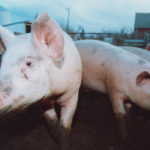
Vet issues shock warning on African swine fever risk
BANFF, Alta. — Swine veterinarian Dr. Egan Brockhoff is scared. That’s what he told about 720 hog producers and industry stakeholders at the Banff Pork Seminar Jan. 10. Here’s why: One case of African swine fever in Canada would close international borders for at least six months and probably longer. The illness has similar symptoms […] Read more

Alta.’s PED find appears to be isolated case
Alberta’s first case of porcine epidemic diarrhea is so far confined to a single 400-sow farrow-to-finish operation in east-central Alberta. Alberta Pork said yesterday that no pigs have left the affected farm since the virus was confirmed and none will be moved until a veterinarian’s certificate is provided. Tests at high-traffic pig sites in the […] Read more


